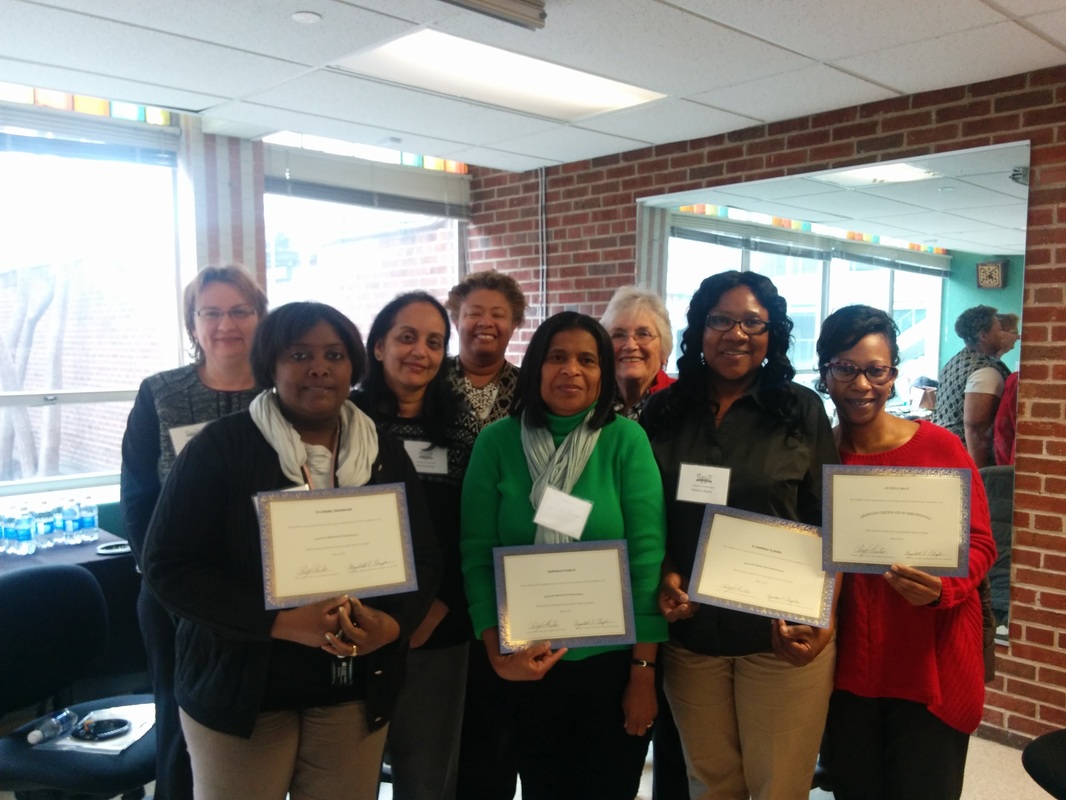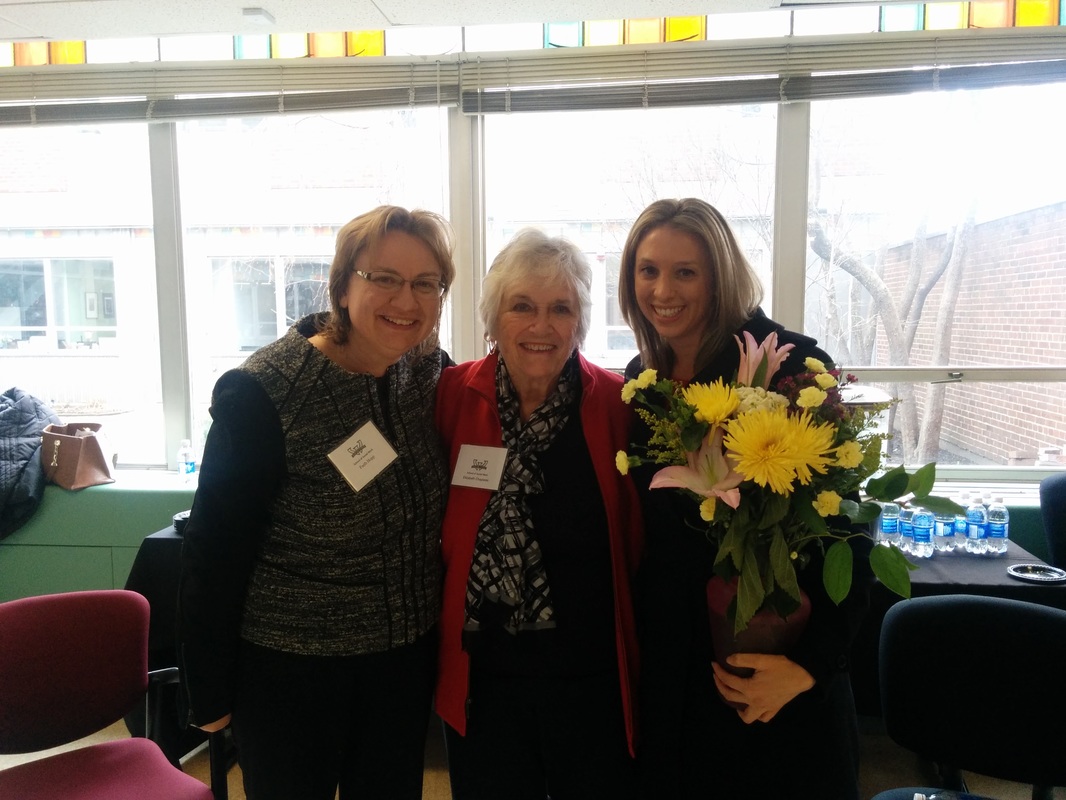Careers in Aging Week was April 3-9th 2016 this year! To celebrate, the UAH learning community members held a poster session on March 31st, and the Graduate Certificate in Gerontology Coordinator, Dr. Elizabeth Chapleski (UAH member) hosted a Gerontology certificate reception on Thursday, April 7th.
Learning community members created posters and gave presentations on any topic within aging of their choice during the last learning community meeting of the year. To view all student posters, please visit the learning community poster page here! After presentations, the meeting concluded with discussing the 12 Grand Challenges for Social Work put forth by the American Academy of Social Work & Social Welfare. Learning community members discussed how aging fits within each challenge and how we can work towards eliminating these challenges as gerontological social workers. Please click here to learn more about the 12 Grand Challenges.
The Gerontology certificate reception was held at the new School of Social Work building, located at 5447 Woodward Ave, Detroit. This reception honored current students in the certificate program, recent graduates, and former certificate holders. Attendees had the opportunity to meet with peers, colleagues, faculty and staff. After a greeting from Dean Waites, and a look at the history of the Certificate, Dr. Faith Hopp gave a talk on careers in aging, the future of social workers within gerontology, and the opportunity to learn about careers in aging resources as well. The reception ended with a huge congratulation to the first graduate of the dual-title Social Work Gerontology PhD program at Wayne State, Dr. Chrissy Marsack! The School of Social Work is extremely proud of her achievements!
Learning community members created posters and gave presentations on any topic within aging of their choice during the last learning community meeting of the year. To view all student posters, please visit the learning community poster page here! After presentations, the meeting concluded with discussing the 12 Grand Challenges for Social Work put forth by the American Academy of Social Work & Social Welfare. Learning community members discussed how aging fits within each challenge and how we can work towards eliminating these challenges as gerontological social workers. Please click here to learn more about the 12 Grand Challenges.
The Gerontology certificate reception was held at the new School of Social Work building, located at 5447 Woodward Ave, Detroit. This reception honored current students in the certificate program, recent graduates, and former certificate holders. Attendees had the opportunity to meet with peers, colleagues, faculty and staff. After a greeting from Dean Waites, and a look at the history of the Certificate, Dr. Faith Hopp gave a talk on careers in aging, the future of social workers within gerontology, and the opportunity to learn about careers in aging resources as well. The reception ended with a huge congratulation to the first graduate of the dual-title Social Work Gerontology PhD program at Wayne State, Dr. Chrissy Marsack! The School of Social Work is extremely proud of her achievements!



 RSS Feed
RSS Feed
